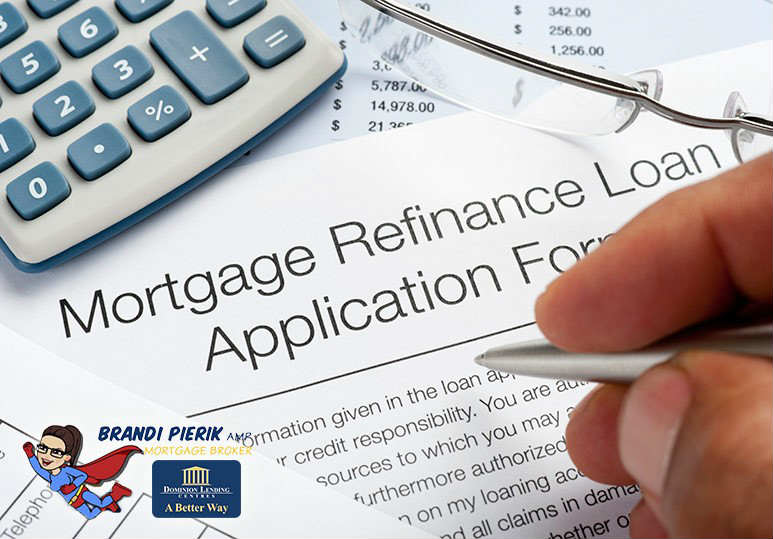Mortgage Blog
We Have a Mortgage for That - Red Deer, Calgary & Alberta Mortgage Solutions
Thinking of Refinancing Your Mortgage?
January 15, 2016 | Posted by: Brandi Pierik and Matthew Pierik - Red Deer and Calgary Mortgage Brokers
9 Things You Should Consider First
More and more Canadians are choosing to refinance as extremely low mortgage rates encourage homeowners to restructure their finances. However, whether or not mortgage refinancing is right for you depends on a variety of factors including your individual circumstances. If you are considering refinancing your mortgage there are a few questions you should be able to answer first.
1. How much home equity do you have?
In order to qualify for refinancing you need to know how much home equity you have, which refers to how much of your home you own as opposed to how much the bank owns. If your house has lost too much of its market value you may end up actually owing more to your mortgage lender than your house is worth The best way to find out how much home equity you have is to sit down with your mortgage lender, ask them, and discuss your individual financial needs with them.
2. What is your credit score?
The current economic situation has prompted many lenders to tighten their standards for loan approvals. This means that even individuals with good credit may not always qualify for the lowest interest rates. Most lenders want to see a score of at least 720 in order to qualify for the lowest interest rates. You can find out your credit score for free from Equifax Canada and TransUnion Canada, and should check with both bureaus.
3. What is your debt-to-income ratio?
In recent years lenders have become more strict about debt-to-income ratios when it comes to approving mortgages and other loans. While some factors such as high income, a long and stable job history or a substantial savings may help you qualify for a loan lenders typically want your housing payments to constitute no more than 28 percent to 31 percent of your gross monthly income. Many lenders want your overall debt-to-income ratio to be no more than 36 percent, though some will accept individuals with over 40 percent as long as they can offer additional positive factors. If your debt-to-income ratio is too high you should consider paying down some of your debt in order to qualify for refinancing.
4. How much will it cost to refinance?
Home refinancing typically costs between 3 percent and 5 percent of the loan amount, but there are several ways borrowers can reduce these costs or wrap them into the loan. If you have enough equity you may be able to roll the costs into your new loan, increasing the principal. Some lenders even offer a “no cost” refinancing option, which usually means you will pay a slightly higher interest rate in order to cover the closing costs. Before deciding on a lender you should negotiate and shop around for the best deal.
5. What about rates versus term?
While many borrowers focus on the interest rate you should first establish your financial goals before deciding which mortgage is right for you. If you want to reduce your monthly payments as much as possible you should consider a loan with the lowest interest rate and the longest term. If you want to save on interest overall you want a loan with the shortest term and the lowest possible interest rate. If you are trying to pay off your loan as quickly as possible you should look for a mortgage with the shortest term whose payments you can afford.
6. What about the points?
When comparing various mortgage loan offers you should consider both the interest rates and the points. Points, which are equal to 1% of the loan amount, are often paid to bring down the interest rate. Make sure you calculate how much you will pay in points for each loan, since these will be paid ad the closing or wrapped into the principle of your new loan.
7. What is your break even point?
The break even point refers to the point at which the costs of refinancing have been covered by your monthly savings. After the break even your savings are completely your own. For example, if your refinance cost you $2000 and you are saving $100 per month over your previous loan it will take you 20 months to recoup your costs. If you plan to sell your home and move in less than 2 years then refinancing at this point does not make financial sense.
8. Will you need Private Mortgage Insurance?
Homeowners who own less than 20% of the equity in their home when they refinance will likely be required to pay for Private Mortgage Insurance (PMI). If you are already required to pay PMI this will not affect you very much, but some homeowners who own homes that have decreased in value since their purchase date may discover that by refinancing they will need to start paying PMI for the first time. The reduced payments due to a refinancing may not be low enough to offset this additional cost, which means refinancing may not make financial sense.
9. How will refinancing affect your taxes?
Many homeowners rely on their mortgage rate interest reduction to reduce their federal tax bill. Though refinancing means you will be paying less interest your tax deduction may be lower. However, it is also possible that the interest deduction will become higher the first few years after the loan because the interest portion of the monthly payment is higher than the principle. Increasing the size of your loan by taking cash out or rolling in closed costs will impact the amount of interest you pay, and points paid during a refinance may be deducted over the life of the new mortgage loan. Consult with your tax advisor to determine how a refinance would impact your taxes.
For many homeowners refinancing can be a smart financial move, but this is not always the case. Discuss your finances with your mortgage broker to see if refinancing is a good option for you. For more information about refinancing, or to book a meeting, contact Pierik Financial today at 403-588-8657 and visit www.wehaveamortgageforthat.ca.
Blog Categories
- Main Blog Page
- Commercial Real Estate (1)
- Financing (16)
- First Time Home Buyers (2)
- Home Ownership (2)
- Mortgage (110)
- Mortgage Calculator (4)
- Mortgages (8)
- New to Canada (1)
- Real Estate (35)
- Red Deer Home Equity Loans (1)
- Red Deer Mortgage Rates (2)
- Red Deer Mortgage Refinance (6)
- Red Deer Mortgage Renewals (4)
- Red Deer New Mortgages (10)
- Red Deer Pre-Approval (7)
- Red Deer Real Estate (7)


